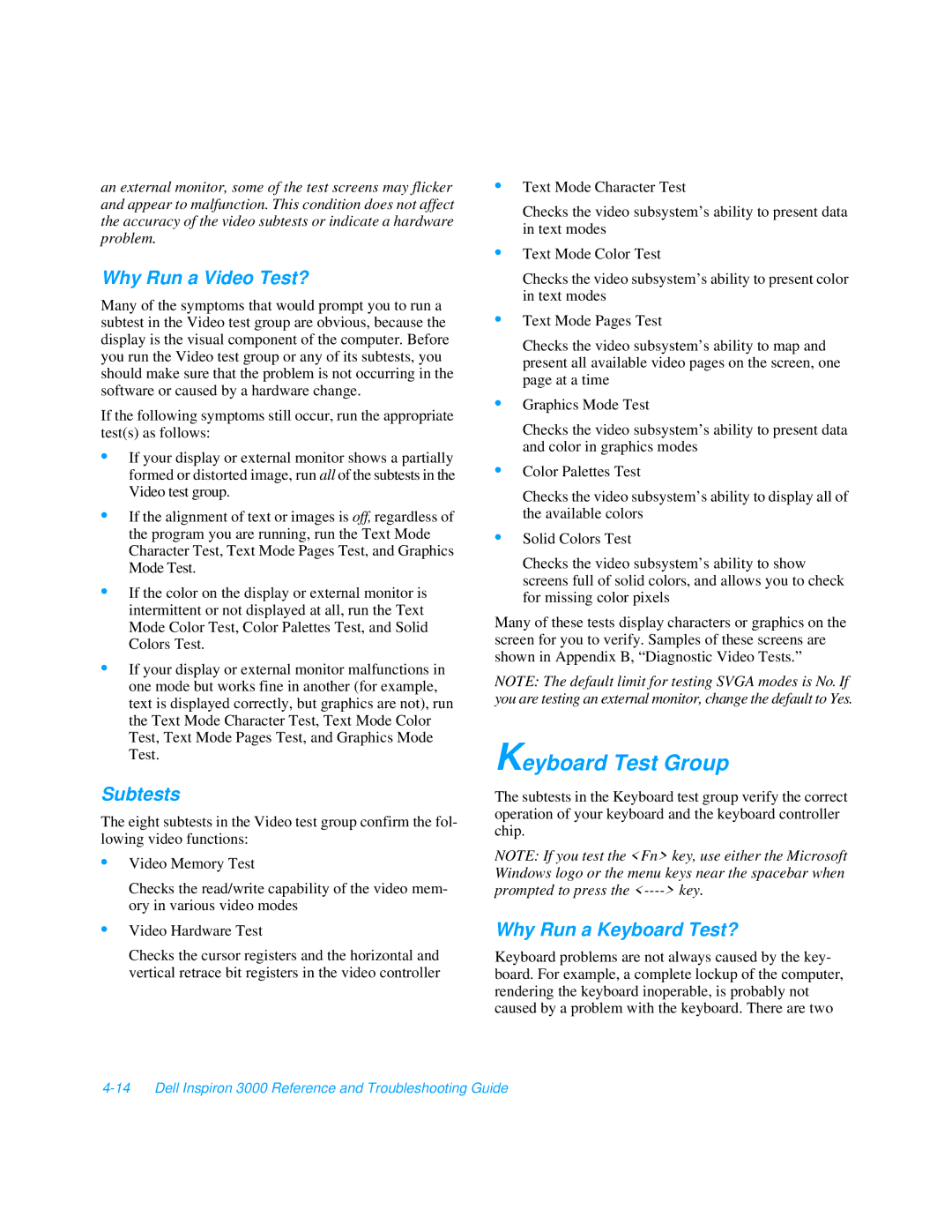an external monitor, some of the test screens may flicker and appear to malfunction. This condition does not affect the accuracy of the video subtests or indicate a hardware problem.
Why Run a Video Test?
Many of the symptoms that would prompt you to run a subtest in the Video test group are obvious, because the display is the visual component of the computer. Before you run the Video test group or any of its subtests, you should make sure that the problem is not occurring in the software or caused by a hardware change.
If the following symptoms still occur, run the appropriate test(s) as follows:
•If your display or external monitor shows a partially formed or distorted image, run all of the subtests in the Video test group.
•If the alignment of text or images is off, regardless of the program you are running, run the Text Mode Character Test, Text Mode Pages Test, and Graphics Mode Test.
•If the color on the display or external monitor is intermittent or not displayed at all, run the Text Mode Color Test, Color Palettes Test, and Solid Colors Test.
•If your display or external monitor malfunctions in one mode but works fine in another (for example, text is displayed correctly, but graphics are not), run the Text Mode Character Test, Text Mode Color Test, Text Mode Pages Test, and Graphics Mode Test.
Subtests
The eight subtests in the Video test group confirm the fol- lowing video functions:
•Video Memory Test
Checks the read/write capability of the video mem- ory in various video modes
•Video Hardware Test
Checks the cursor registers and the horizontal and vertical retrace bit registers in the video controller
•Text Mode Character Test
Checks the video subsystem’s ability to present data in text modes
•Text Mode Color Test
Checks the video subsystem’s ability to present color in text modes
•Text Mode Pages Test
Checks the video subsystem’s ability to map and present all available video pages on the screen, one page at a time
•Graphics Mode Test
Checks the video subsystem’s ability to present data and color in graphics modes
•Color Palettes Test
Checks the video subsystem’s ability to display all of the available colors
•Solid Colors Test
Checks the video subsystem’s ability to show screens full of solid colors, and allows you to check for missing color pixels
Many of these tests display characters or graphics on the screen for you to verify. Samples of these screens are shown in Appendix B, “Diagnostic Video Tests.”
NOTE: The default limit for testing SVGA modes is No. If you are testing an external monitor, change the default to Yes.
Keyboard Test Group
The subtests in the Keyboard test group verify the correct operation of your keyboard and the keyboard controller chip.
NOTE: If you test the <Fn> key, use either the Microsoft Windows logo or the menu keys near the spacebar when prompted to press the
Why Run a Keyboard Test?
Keyboard problems are not always caused by the key- board. For example, a complete lockup of the computer, rendering the keyboard inoperable, is probably not caused by a problem with the keyboard. There are two
